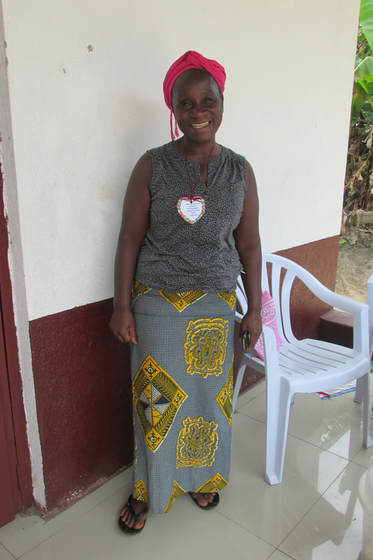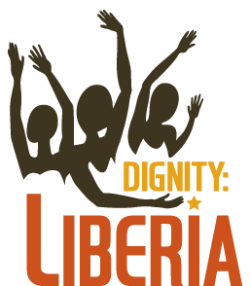
Interview Date: September 4, 2018
Interview Location: Phebe Rehab Center, Bong County, Liberia
Interviewers: Kathy Beth Stavinoha and Kathi Gutierrez
Leemue Cooper has served as the matron of the Phebe Rehabilitation Center since July 2011. She is originally from Bopolu. She has four children: three boys and one girl. She had two brothers and four sisters, one of whom was her twin. Her twin passed about 3 weeks before this interview. When she died, Leemue took in her two granddaughters, as their mother is also deceased. Leemue has five grandchildren of her own.
Leemue got her fistula on April 18, 1981 while delivering her first baby, who did not survive. She had been in labor for four days. She could see the “water” (urine) running, which was very difficult for her. She cried all day and night. They didn’t call it fistula. They called it the “pee pee problem.” She didn’t want to be around anybody. Any time she stood up, she had to feel under her clothes to see if she was wet. It was not easy.
Then she was taken to Phebe. She saw three girls suffering from the same thing and she realized she wasn’t alone. Her fistula was repaired with only one surgery. Of the other three girls, one did not survive surgery.
She has never had another fistula because her next three children were delivered by C-section. She didn’t wait to go into labor. Twenty to twenty-eight days into her 9th month of pregnancy, she would go to the hospital for the surgery.
What made her sad about having a fistula is that she felt like nobody in society. She felt like spoiled goods. She felt as if she had been broken. It’s a bad feeling but, if your friends come around you, you aren’t as anxious.
When the new survivors arrive at the Rehabilitation Center, she likes to draw close to them so they know they are not alone. Even though she’s the matron, she wants them to feel they are like her. She wants them to know that she was like them before. She teaches the girls how to fold their clothes so that their urine doesn’t leak through. It used to be difficult to control the different girls, but God has helped her. She can put them together.
Their typical day starts at 7:00 or 7:30. Everyone finishes bathing before 7:00. At 7:30, they start their work. During the week, the girls need to take care of themselves; they go to class, they eat and they clean their own rooms and wash their own clothes. Sometimes they stay up until 10:00 o’clock. They gather in the palava hut and play. They have a laptop to watch a video. Around 10:00 or 10:30 they go to bed though some of the girls do not go to bed until 11:00. They now have electricity hooked up to solar. The only time they can’t get electricity is when it’s out on the entire compound.
Dignity:Liberia has done so many things for them. They bring clothes and toys and plastic panties** for the girls. The girls can’t buy anything at Rehab. She can’t name everything they do. They come and visit twice a year and make them happy. She is very appreciative of Dignity:Liberia’s help.
The greatest need for the girls living at the Rehab Center includes bedding, plastic mattress covers, and many small things including deodorant.
Leemue would like people in the United States to know that in Africa, when girls living in rural areas go into labor, they can’t go to the hospital. They go to midwives* who use their bare hands to deliver babies. So they are asking the American people to help get rid of fistula in Africa as a whole. The people in Liberia really want fistula to go away. They need to teach nurses so they can be trained to deal with fistula.
Leemue is a fistula survivor. Hear her story in her own voice.
**Depends

 RSS Feed
RSS Feed